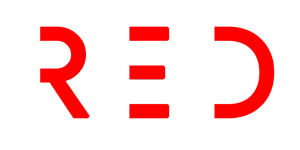Mapping Keywords to User Intent and the Buyer’s Journey
The Importance of Keyword Research
Keyword research is a fundamental aspect of any successful SEO strategy. It involves identifying the words and phrases that your target audience is using to search for products or services online. By understanding the keywords that are relevant to your business and aligning them with user intent and the buyer’s journey, you can optimize your website content and attract more qualified traffic.
The Buyer’s Journey
The buyer’s journey refers to the process a consumer goes through from the moment they become aware of a problem to the point where they make a purchasing decision. It consists of three stages: awareness, consideration, and decision.
Awareness Stage
During the awareness stage, the buyer becomes aware of a problem and starts seeking information about it. This is where keyword modifiers like “what,” “how,” “where,” and “who” come into play. Users are looking for informative content that will help them understand their problem better.
Consideration Stage
In the consideration stage, the buyer has identified their problem and is now evaluating different options to solve it. Keyword modifiers such as “best,” “affordable,” and “review” are prevalent at this stage. Users are looking for comparisons, demonstrations, and detailed information about the available options.
Decision Stage
At the decision stage, the buyer has narrowed down their options and is ready to make a final decision. Keyword modifiers like “FAQ,” “reviews,” and “deals” become more prominent. Users want to see case studies, reviews from other customers, and may be looking for discounts or special offers.
User Intent and Keywords
Understanding user intent is crucial when mapping keywords to the buyer’s journey. User intent refers to the goal or purpose behind a search query. By aligning keywords with the user’s intent, you can create targeted and relevant content that addresses their needs and helps guide them through the buyer’s journey.
In the awareness stage, the user’s intent is primarily informational. They are looking for answers to their questions or seeking general knowledge about a topic. By using keywords that reflect this intent, you can provide valuable information to users and establish your website as a trustworthy source.
In the consideration stage, the user’s intent is more commercial. They are actively researching and considering different options. By using keywords that indicate commercial intent, such as “best,” “affordable,” or “comparison,” you can provide users with the information they need to make an informed decision.
In the decision stage, the user’s intent becomes transactional. They are ready to make a purchase or take a specific action. Using keywords that indicate transactional intent, such as “buy,” “book,” or “download,” can help guide users towards completing their desired action.
Putting It All Together
By mapping keywords to user intent and the buyer’s journey, you can ensure that your content is highly relevant and valuable to your target audience. This not only improves your website’s visibility in search engine rankings but also increases the likelihood of attracting qualified leads and converting them into customers.
When creating your SEO strategy, it is essential to categorize keywords based on their intent and align them with the appropriate stage of the buyer’s journey. This will help you create targeted content that meets the needs of your audience and guides them towards making a purchasing decision.
Remember to include clear calls to action throughout your content to prompt users to take the desired action at each stage of the buyer’s journey. Whether it’s “read more” in the awareness stage or “buy now” in the decision stage, these calls to action will help guide users towards the next step in their journey.
In conclusion, mapping keywords to user intent and the buyer’s journey is a crucial aspect of an effective SEO strategy. By understanding the different stages of the buyer’s journey and aligning keywords with user intent, you can create targeted and relevant content that drives qualified traffic to your website. So start mapping your keywords today and watch your SEO efforts pay off!

